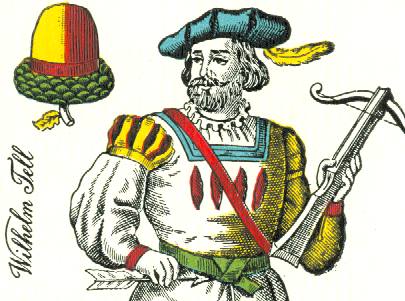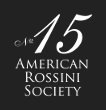William Tell at the Metropolitan Opera

First, here’s the gift! Read the details below.
The Metropolitan Opera is making up for its Rossini drought (Il Barbiere di Siviglia being the exception) by presenting William Tell, before its run of L’Italia in Algerie has finished.
Performances run from October 18th to November 12th.
An all-star cast of mostly non-Rossinians ( with the notable exception of Marina Rebeka who sings Mathilde) includes Bryan Hynel as Arnold ( John Osborne sings one of the performances), Gerald Finley as Tell, Janai Brugger as Jemmy, Maria Zifchak as Hedwige ( until Marianna Pizzolato takes over after finishing with L’Itlaiana),with Marco Spotti, Kwangchul Youn, and John Relya rounding out the cast.
Both Rebeka and Pizzolato are graduates of the Accademia Rossiniana and have appeared numerous times at the Rossini Opera Festival.
Fabio Luisi conducts
Before getting to the myths, we would like to explain about the gift. You can click on the link at the top and read an article by Bruno Cagli who is perhaps not well known to Americans, but is the pre-eminant Rossini scholar of our time. Professor Cagli recently edited ALL of Rossini’s letters, and there is not much that CAN be known about Rossini that Cagli does not know. It is worth a read although the translation can seem a tad quirky at times. This gift is made possible through the generosity of the Rossini Opera Festival and their fantastic publications director and archivist, Carla di Carlo. We hope you enjoy it!
So, here are the myths.
Myth # 1 There is a complete version of William Tell.
Although Tell is too often subject to numerous cuts, if all the music written for Tell ( limiting ourselves just to what Rossini wrote) were included in a performance, it wouldn’t work. Not because it would be too long, but because there would be no way to incorporate all the changes in any fashion that would make dramatic sense.
However, cuts should be carefully made respecting both the logic of the story, and the “arc” of the music.
A case in point might be the trio for women’s voices near the end of the opera. Apparently Rossini allowed it to be cut because the figure of Matilde was “too weak”. By cutting it one effectively eliminated her presence in the last act, particularly during the miraculous finale.
One could argue however that by including the trio one gets a MORE complete picture of Matilde and really come to believe that she has “joined” the other side. Musically it is one of the most sublime things Rossini wrote, but of course he may not have felt that way!
Philip Gossett tells the story in his wonderful book, “Divas and Scholars” that Rossini actually ADDED music to accommodate a scene change when the work was first performed. Later it was cut, but when it was re-inserted in a recent production for La Scala, the director was left to figure out “business” for the addition. Cut and paste is hard!!
Gossett’s view on cuts is one that we should consider when we hear complaints about the versions we are presented with:
“When a conductor omits a passage or an entire number because he honestly doesn’t like it, I may disagree while respecting his motivation. When a conductor makes a cut because it is ‘traditional’, on the other hand he is acting without artistic integrity”. Strong words. We might just add, if the conductor doesn’t like Rossini, he should forget about the cuts and just walk away from the opera.
Finally we should mention that a “complete” William Tell was recently given at the Rossini Opera Festival. Marina Rebeka who appears in the Met’s version was Matilde and really helped establish this complex character as “believable”. Surely the trio for women’s voices in the finale helped to bring this about.
The Tell, was Nicola Alaimo who Met audiences are enjoying in L’Italiana. The role fit him like a glove – a perfect caring father. One could really feel his connection with his “son”.
Myth #2 Rossini didn’t really care about ballet.
This is just false. Modern audiences may believe it thinking ” Oh, Rossini was forced to write ballet because he was in Paris” forgetting that he had included ballet music for Armida which was written for Naples. In fact, Rossini took great interest in ballet, and struggled with the placement of some of the excerpts which he could have cut and, indeed, eventually had to. During his time at the Opera in Paris, he often visited the ballet studio in the theater and according to the Danish choreographer Bournonville who was studying ballet in Paris at the time, Rossini would often come to the studio and tell students about a particular singer who was performing that evening and that they shouldn’t miss hearing it!
Somehow in later years, directors felt they had carte blanche and could insert any type of choreography into Rossini’s operas Ballet fans may be surprised to know that Maria Taglioni, danced in the premier with choreography by Filippo Taglioni. Non-ballet fans should note that this dancer and choreographer were considered some of the best in the world at the time.
A few directors have respected this tradition by including choreography consistent with the ballet of the time, including Luca Ronconi who invited people familiar with the choreographic tradition of Rossini’s time to take over the ballet in the La Scala production in 1988.
Will we ever see the ballet as Rossini “intended”? It is not impossible, but it won’t be in this production at the Met.
Myth # 3 Rossini quit writing opera because…..
The list of proposed explanations is long. Most of them are based on incomplete knowledge of both Rossini and the conditions under which opera composition found itself at the time Tell was premiered.
Before addressing the “most likely” hypothesis, it is worth considering one which doesn’t hear often… and that is Beethoven.
Most know about Rossini’s visit to Beethoven, but few probably know that Rossini tried valiantly to raise money for Beethoven during the time Rossini spent in Vienna. Viennese society had turned its back on the person, Beethoven, while still embracing his music. The entertaining book by Gaia Servadio “Rossini” brings some of this to light. We can only speculate that Rossini became more aware of financial security after having seen Beethoven’s fate. Getting his pension in Paris was of upmost importance. Had it not taken so long to secure it, Rossini might have moved on to England where he conceivably might have continued composting operas. But this is pure speculation.
Anyway, the most logical reason is probably the one hinted at in Cagli’s article. To briefly summarize, the conditions for a composer were very different in Paris from what Rossini left in Italy. In Italy, Rossini essentially had to deal with the impresario and of course the censors. Paris was another thing. Verdi termed it “la grande boutique” and according to Gossett, there was general dissatisfaction among Italia composers working in Paris with the way things were done; it was really “opera by committee”.
The birth of William Tell was certainly clouded by this, and although Rossini was fortunate that he had Vicomte de La Rochefoucauld, Minister of the Royal Houshold as an admirer and protector.Cagli suggests that a private correspondence ( had it existed) might have been the key to why Rossini gave up composing opera.
Whatever the explanation is, it is probably wise to listen to Rossini scholars rather than “simple” music critics.
Finally, before another myth gets started, Tell did NOT shot an acorn off his son’s head in spite of what the picture suggests. The image is from a set of playing cards of a type popular in Hungary. Instead of hearts, clubs, etc. acorns are one of the suits.
